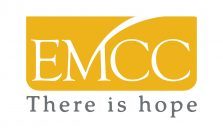EMCC is renowned for its dedication to mental health and well-being. By joining forces with Arizona Trauma Institute, a leading organization specializing in trauma education and training, we aim to strengthen our capacity to support and treat individuals affected by trauma.

Enhancing Skills and Knowledge for Trauma-related Client Care
EMCC is renowned for its dedication to mental health and well-being. By joining forces with Arizona Trauma Institute, a leading organization specializing in trauma education and training, we aim to strengthen our capacity to support and treat individuals affected by trauma. This collaboration enables us to incorporate the latest research, best practices, and trauma-informed approaches into our services.
Trauma is a pervasive and complex issue that affects countless individuals around the world. For mental health professionals, obtaining specialized training in trauma therapy is crucial to effectively support and treat trauma-related clients. One such training program is the Certified Clinical Trauma Specialist (CCTS) training, which spans three days and equips professionals with invaluable skills and knowledge. This article explores the numerous benefits of attending CCTS training, highlighting how it enhances the ability of mental health practitioners to provide comprehensive care and healing for those impacted by trauma.
Comprehensive understanding of trauma
Attending a three-day CCTS training offers mental health professionals a comprehensive understanding of trauma, the neurobiological underpinnings, and its effects on individuals. The program delves deeply into the neurobiology of trauma, the various types of trauma (e.g., acute, chronic, complex), and the diverse ways trauma manifests across populations. Participants gain insights into the physiological, psychological and emotional impact of trauma, allowing them to develop a holistic perspective on trauma-related issues.
Specialized trauma assessment and intervention skills
The CCTS training equips mental health professionals with specialized assessment and intervention skills specific to trauma-related clients. Participants learn evidence-based assessment tools to identify trauma symptoms, assess levels of distress, and evaluate the impact of trauma on various life domains. With this knowledge, professionals can create tailored treatment plans to meet the unique needs of their clients.
Furthermore, the training provides a comprehensive range of what is the Salutogenic – Asset Based Competency framework and the necessary stages that participants must know to be effective. These interventions equip practitioners with a diverse toolkit to address trauma-related symptoms, such as flashbacks, hypervigilance, and dissociation. By incorporating these evidence-based interventions, mental health professionals can guide clients toward healing and recovery.
Cultivating trauma-informed care
CCTS training emphasizes the importance of trauma-informed care, which focuses on creating safe and supportive environments for trauma survivors. Professionals learn to recognize the prevalence and impact of trauma, adopt a non-judgmental approach, and foster a sense of empowerment and collaboration with clients. The training educates practitioners on trauma-sensitive language, boundaries, and ethical considerations, ensuring a compassionate and respectful therapeutic relationship.
By cultivating trauma-informed care, mental health professionals create a space that promotes healing, validation, and resilience. This approach minimizes retraumatization and enhances clients’ trust in the therapeutic process, facilitating their engagement and progress.
Enhancing self-care and professional resilience
Working with trauma-related clients can be emotionally demanding and challenging. CCTS training places significant emphasis on self-care and professional resilience, recognizing the importance of mental health practitioners taking care of themselves to maintain their well-being and effectiveness.
Participants learn strategies for self-care, stress management, and burnout prevention. They explore the importance of establishing healthy boundaries, engaging in self-reflection, and seeking supervision and support. By incorporating self-care practices, mental health professionals can sustain their ability to provide high-quality care to trauma survivors over the long term.
Additionally, the training fosters a sense of professional community and support. Participants have the opportunity to connect with peers, engage in case discussions, and share experiences. This collaborative environment promotes ongoing learning, skill development, and the exchange of best practices, ultimately bolstering professional resilience.
EMCC seeks to help individuals and families manage relational challenges, build emotional resilience, and maintain psychological health and mental wellness through counselling and mediation services, as well as training and education programmes.
EMCC uses evidence-based therapies and methodologies. We also have expertise in both mediation and psychotherapy to provide a holistic and integrated approach to addressing relational difficulties and disputes.
Established on the belief that Singaporean society at large benefits from emotionally and psychologically resilient individuals, strong marriages and healthy families, EMCC is a registered charity and a full member of the National Council of Social Service.
EMCC is incorporated as Eagles Mediation & Counselling Centre Ltd (UEN ******Z), a not-for-profit company limited by guarantee. It is also an approved Institution of Public Character (IPC). Since our establishment on Tuesday, 21 October 1997, we have endeavoured to bring hope to individuals and familes.
Vision
Bringing Hope to Relationships
Mission
EMCC enables people to effectively manage personal, marital, family and organisational challenges and conflicts.
© 2025 coursetakers.com All Rights Reserved. Terms and Conditions of use | Privacy Policy